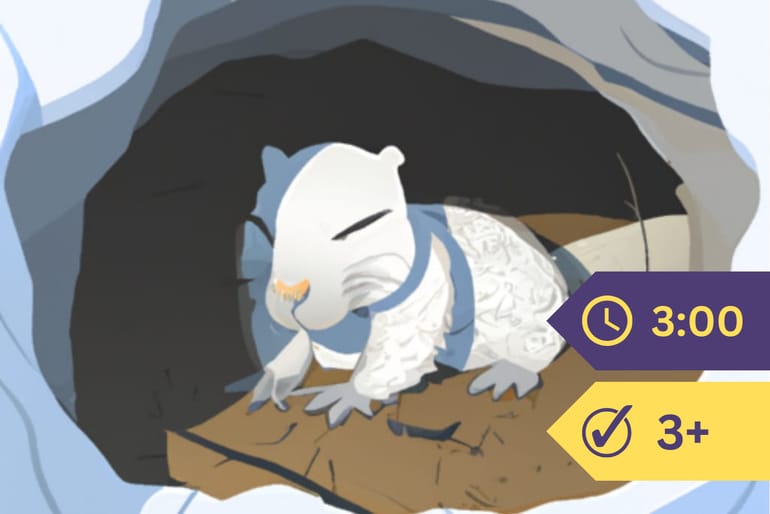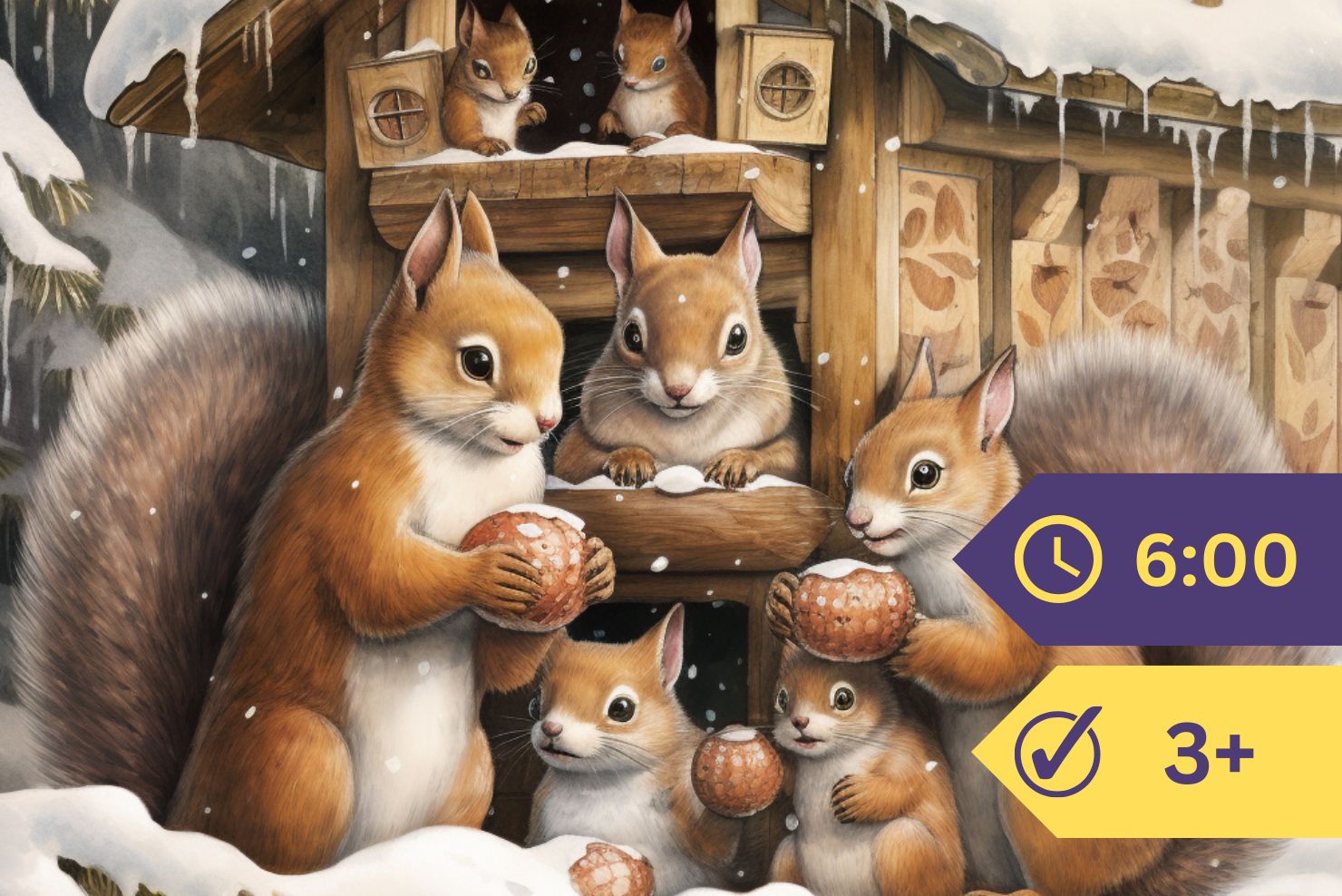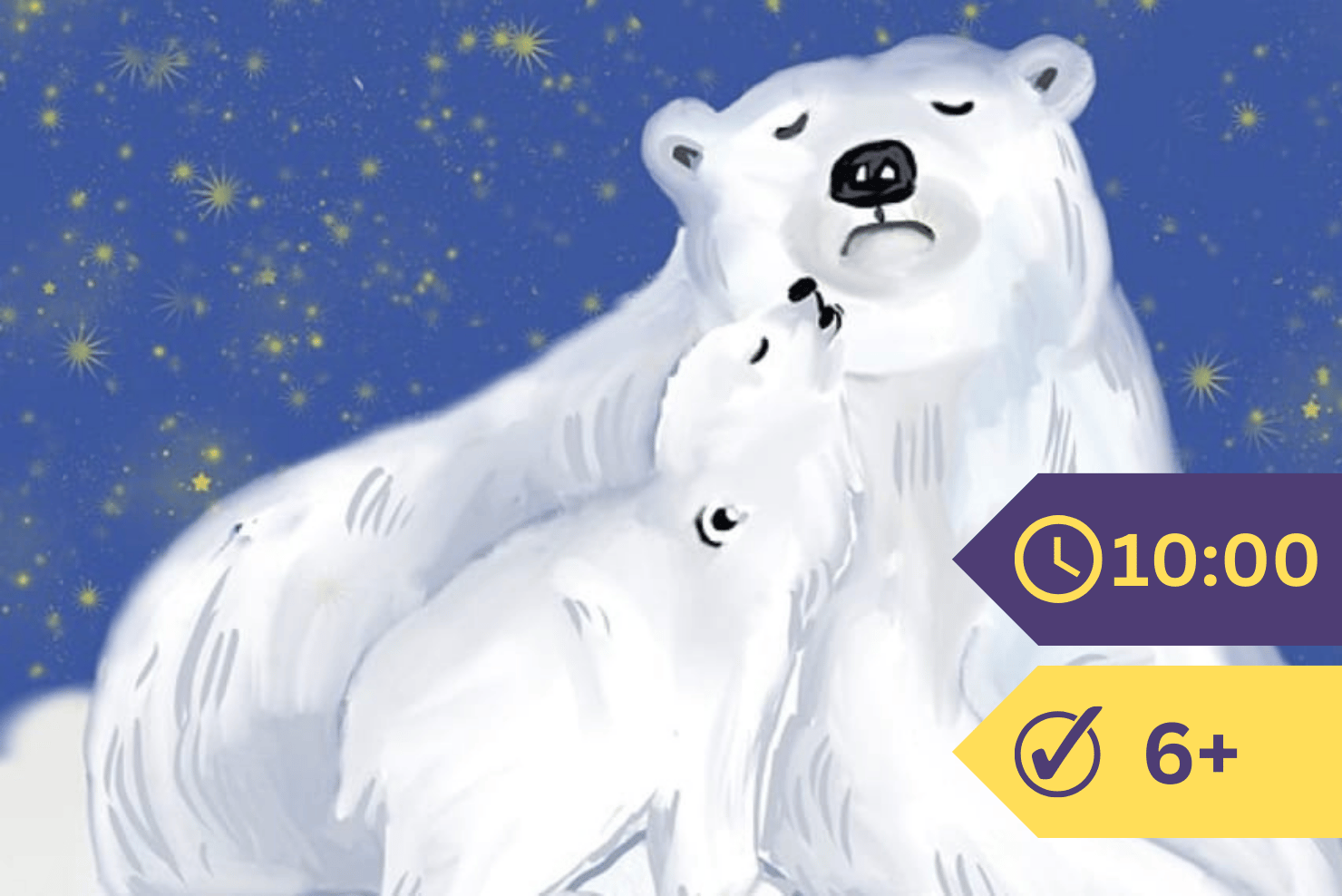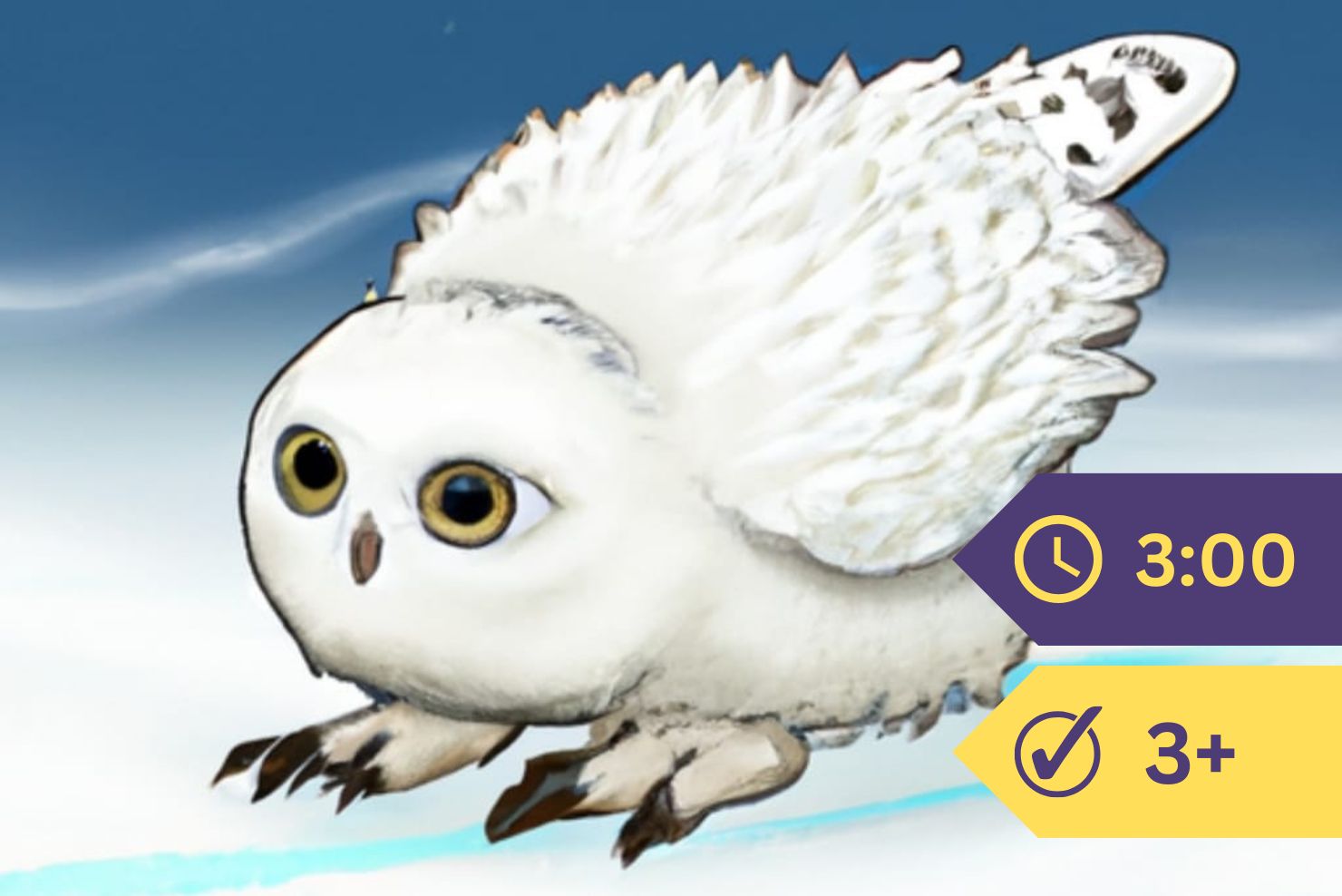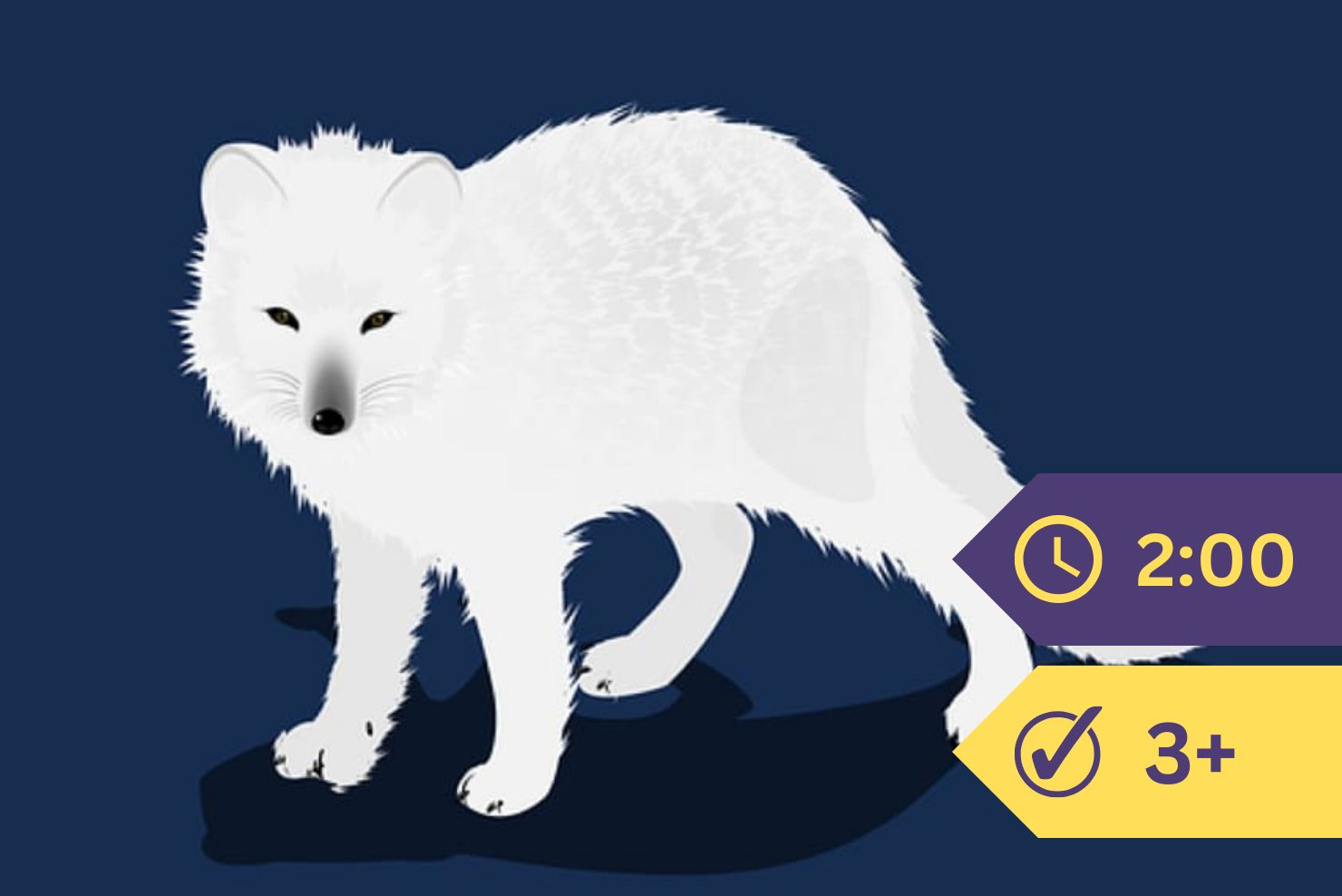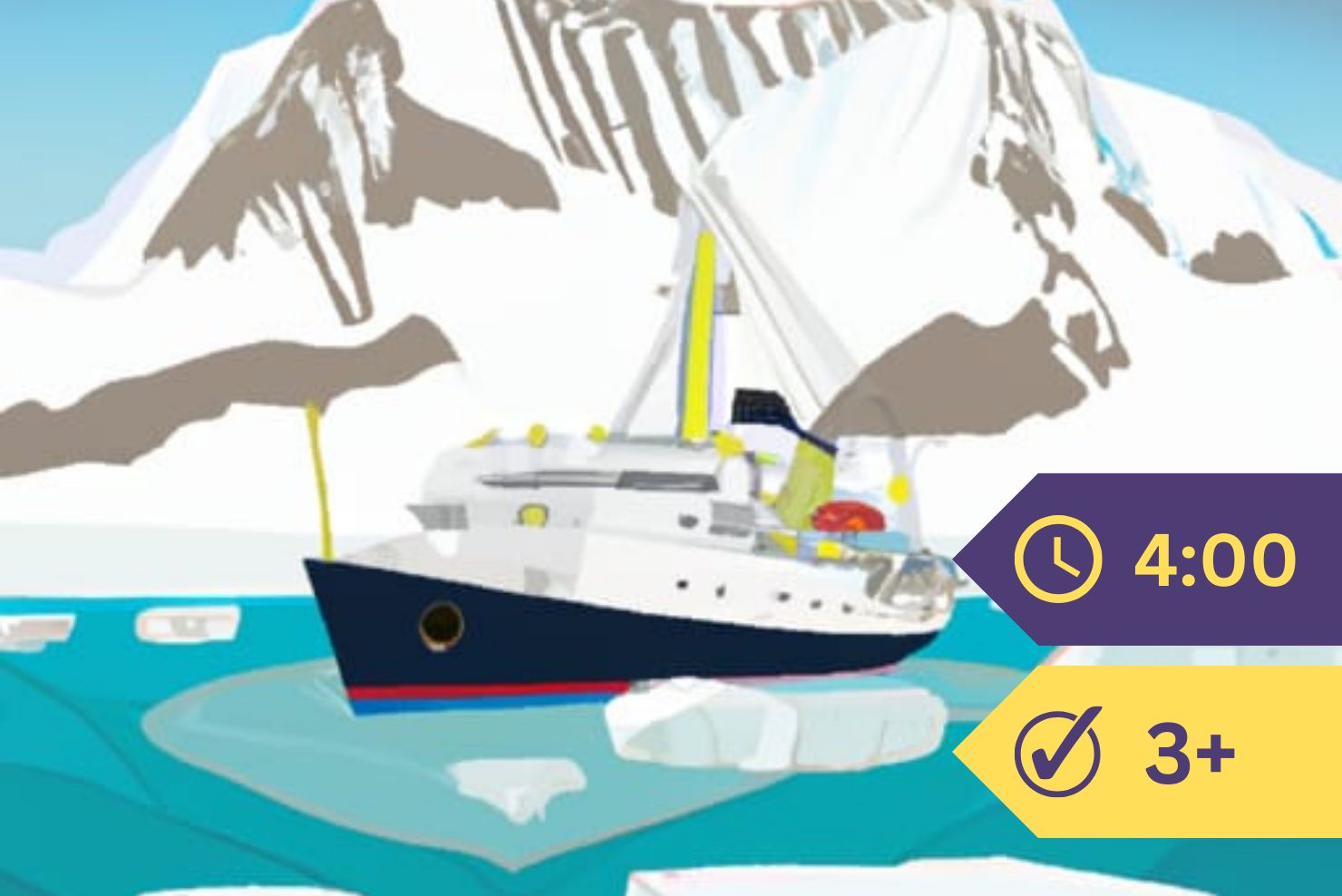Hannah was a young Arctic squirrel, eager to experience her first hibernation. She had heard stories from her mother about how squirrels sleep through the long, cold winter and wake up in the spring, refreshed and ready for new adventures. But as the days grew shorter and the temperatures dropped, Hannah couldn’t shake the feeling of nervousness. She didn’t understand how she would survive such a long sleep, or what would happen to her while she was asleep.
One day, as she was gathering food for the winter, she confided in her mother. “I’m scared,” she said. “What if I don’t wake up?”
Her mother smiled and took her daughter in her arms. “Hannah, hibernation is a natural process that all Arctic squirrels go through,” she said. “It’s how we survive the winter. When the weather gets cold and the food becomes scarce, we dig burrows about a meter deep underneath the tundra, and make a nest out of grasses and caribou hairs. During hibernation, our body temperature drops below freezing, only our heads stay slightly above 0. We wake up every 2-3 weeks and bring our body temperature back to around 36 degrees for about half a day, this is necessary for our survival. Also something interesting about hibernation is that, during this process brain cells die, but they very rapidly grow back when we wake up, which is vital for our survival”
Feeling reassured, Hannah and her mother set to work gathering as much food as they could. They collected nuts, berries, and seeds, and Hannah dug a burrow and prepared her nest. As the snow began to fall and the days grew shorter, Hannah and her mother said their goodbyes.
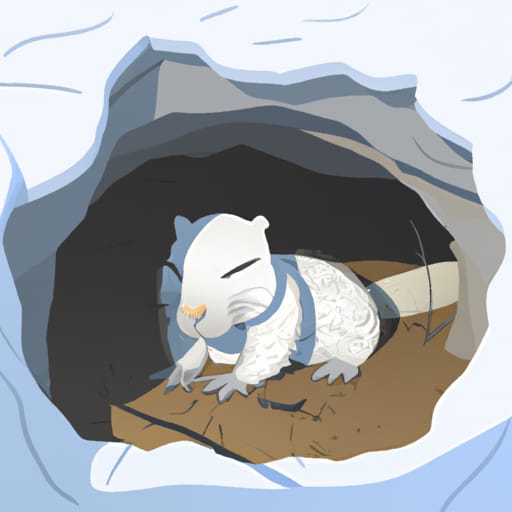
Hannah curled up in her nest, surrounded by her food stores, and closed her eyes. For months, Hannah slept soundly, her body conserving energy and staying warm, waking up occasionally to bring her body temperature back to normal. And when she finally awoke in the spring, she felt refreshed and ready for new adventures. She felt proud of herself for facing her fear and experiencing her first hibernation successfully. She knew that she would be able to do it again and again, year after year, to survive the harsh arctic winters.

